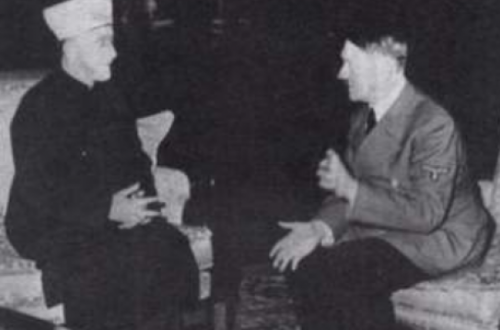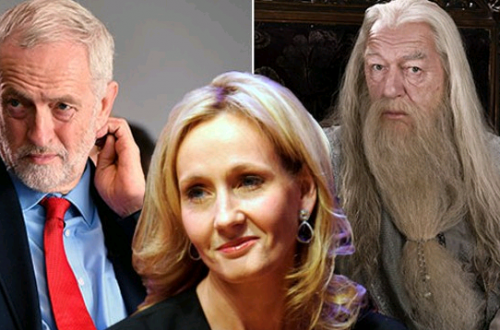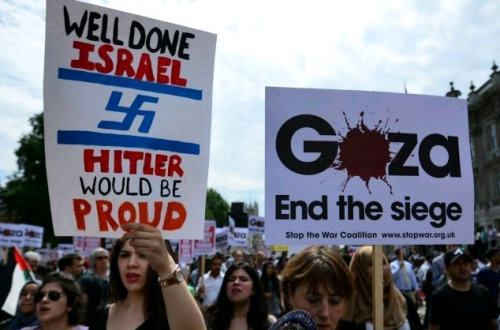In 1998, the then Home Secretary launched a “Race Relations Forum”, with the intention of giving “ethnic minority communities a voice in the heart of government”. The likes of Bernie Grant MP and Trevor Phillips were invited to join the body, which held its first meeting in June 1998.
Makbool Javaid was also a member of that Forum.
The appointment of Javaid by Jack Straw illustrates quite how far off the radar of the security services, the activists of extremist Islamists were a decade ago. There were seen as funny foreigners: silly but harmless. Abu Hamza was “Captain Hook”. Omar Bakri Mohammed was – with litte understanding of the difference between Shiites and Sunni takfiris – “The Tottenham Ayatollah”. Yes, there had been the Embassy Bombings, one of the first operations of Osama Bin Laden’s Al Qaeda. But this all happened a long way away, in a country about which we knew little.
It would therefore have come as a terrible surprise to Makbool Javaid, to find that the Board of Deputies had complained to the Government about his inclusion in the Forum. Worse was to come. The Times and The Guardian both picked up the story, and Makbool Javaid was thrown into the spotlight.
Makbool Javaid took immediate action. He sued the newspapers, who had said that he was a supporter of Osama Bin Laden.
That was a brave decision. Omar Bakri Mohammed – incapable of keeping counsel – unhelpfully told The Times that Makbool Javaid was indeed a member of Al Muhajiroun. He expressed surprise that Jack Straw had appointed Makbool Javaid to the Forum, and claimed that Makbool Javaid had denied accepting the appointment. Anjum Choudary likewise opined that, as a ‘very religious man’, Javaid ‘knows he is not allowed to be in a forum like this’. Omar Bakri Mohammed concluded the interview by expressing his own support for Osama Bin Laden.
I can find no evidence at all that Makbool Javaid has ever expressed support for Osama Bin Laden. He was merely a founding member of an organisation whose leader expressed support for Osama Bin Laden, and who claimed to have procured his ‘endorsement’ – alongside a series of other jihadist leaders – at a conference that never took place.
Certainly Makbool Javaid’s name had appeared – in February 1998 – on a fatwa declaring jihad – by all means including military – against the UK and the US. I do not know whether this evidence was available to the lawyers for newspapers, when they decided to settle the libel suit rather than fight it. Back in 1998, with jihadist violence in the West unimaginable, the game may simply have appeared to be not worth the candle.
The effect of Makbool Javaid was salutory. He survived an inquiry by his partners at the law firm, Dibb Lupton, and dropped out of Omar Bakri Mohammed’s circle.
However, as all hacks know, politics is an addiction. Once you’ve had the roar of the crowds in your ears, it is very difficult to return to a completely quiet life.
A few years later Makbool Javaid began to re-engage with Islamist politics. He began to work with two groups – Stop Political Terror and Cageprisoners – which were broad coalitions between a variety of Islamist groups. Hizb ut Tahrir were closely involved in these groups, and they campaigned hard against proposals to ban it.
Perhaps mindful of the need to keep himself out of the spotlight, and perhaps in honor of his son, Makbool Javaid adopted a “nom de guerre”: Abu Yusuf. Here he is, speaking at a Cageprisoner rally, alongside Hizb ut Tahrir’s Imran “Doctor Evil” Waheed”, at the Muslim Unity March in 2005:
With Stop Political Terror, “Abu Yusuf” took part in a meetings in support of the imprisoned jihadist webmaster, Babar Ahmed. Here is the flyer for one such meeting, in Cambridge, at which he was joined on the platform by Yvonne Ridley, the “revert” and Zarqawi supporter.
In 2004, Makbool Javaid wrote an article which indicates the extent to which his worldview has developed since his days with Al Muhajiroun. It is not the article itself which gives the game away. Rather, it is the way that Makbool Javaid chooses to describe himself:
Abu Yusuf
International Human Rights Lawyer
Master of Kuffar Laws – LSE
Consider that term for a moment: Master of Kuffar Laws. What does it mean? Kuffar is a term of abuse, certainly. So to call yourself a “Master of Kuffar Laws” is a bit like describing yourself as a “Master of Yid Accounting” or a “Virtuoso on the Nip Violin”. It implies that, although you have a particular skill, you hold in contempt those who support non-Islamic and secular legal systems, and you disassociate yourself from them.
That is essentially where Makbool Javaid must stand now. He rejects law, except as a means of earning his living or achieving his political aims. He tells Muslims not to participate in mainstream politics, to join “silly little parties“, because he wants something better: a political system that is “rooted in Islam”.
That is what Makbool Javaid says when he is trying to recruit Muslims to his politics.
When he speaks at the Bar Conference, will he tell the audience that Muslims must not vote on pain of becoming apostates? Will he call on the audience to reject “man made” “Kuffar laws”? Will he condemn the “disease” of “secularism”? Will he oppose equality between men and women, Muslim and non Muslims, and “Kuffar” human rights? Will he call for a Caliphate to impliment his ideal vision of a theocratic State? Will he call on Muslims to engage in military jihad?
My guess is that he will not.
Makbool Javaid must be hoping that nobody in the audience, or on the panel knows of his politics. Instead, he may be planning to talk on subject which have now become acceptable within polite society: such as the need for a separate Sharia legal system for British Muslims.
If called on his politics, I expect that Makbool Javaid will insist that he does not support military jihad, will claim that his name was affixed to the various pamphlets and calls for jihad without his knowledge, that his involvement in Al Muhajiroun and Omar Bakri Mohammed was – as he put it in 1998 – “as a lawyer concerned with civil liberties”. He will claim that he is a victim of a ‘neocon smear’. He will claim that he has been investigated, previously, and found not guilty on all charges.
You have seen the source material. You should form your own verdict on the kind of political activist that the Bar Council has invited to address the Bar of England and Wales.


